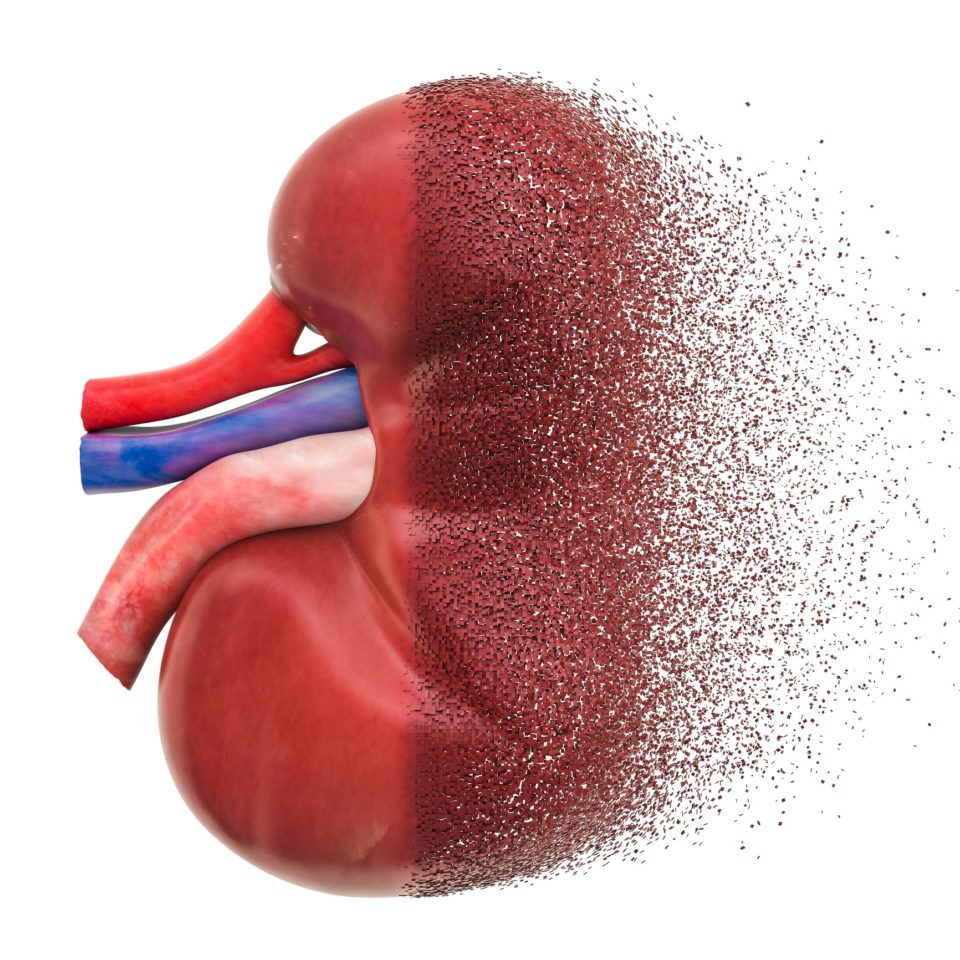
Editor’s Note:
On December 17, 2020, GSK announced the US Food and Drug Administration approved BENLYSTA (belimumab) for the treatment of adult patients with active lupus nephritis (LN) who are receiving standard therapy. The approval extends the current indication in the US to now include both systemic lupus erythematosus (SLE) and LN for both the intravenous and subcutaneous formulations.
The FDA approval for adult patients with active LN follows a Breakthrough Therapy Designation and Priority Review and is based on the positive results of the BLISS-LN (Efficacy and Safety of Belimumab in Adult Patients with Active Lupus Nephritis) study and the unmet need in this patient population. Statistical significance compared to placebo across all four major secondary endpoints was achieved, including Complete Renal Response and Time to Renal-Related Event or Death. The safety results are consistent with the known safety profile of BENLYSTA.
Kidney disease occurs in approximately 60% of patients with systemic lupus erythematosus (SLE). Even with treatment, between 10% and 20% progress to end-stage renal disease.1,2 Treatment of lupus nephritis is divided into induction and maintenance phases. In induction, high doses of a steroid, either as methyl prednisone given as intravenous pulse doses or oral high dose prednisone, are administered accompanied with a cytotoxic immunosuppressive agent (usually mycophenalate mofetil [MMF]). In the maintenance phase, in addition to oral prednisone now at a low dose, cytotoxic therapy is administered (usually MMF or azathioprine). Despite treatment patients continue to have exacerbations of disease or become refractory to treatment.
A multifactorial etiology for lupus nephritis has been supported by numerous studies. All of the immune factors have been shown to play a role in initial inflammation characteristic of active nephritis. Therapies targeting T cells, B cells, cytokines and complement have been proposed, and some have shown promise.
Inhibiting B cells disables one part of the immune system in SLE. A key molecule critical to the activation of B cells is called B lymphocyte stimulator (BLyS), (B cell-activating factor [BAFF]). BLyS is a costimulator for B-cell survival and function (expressed by a wide variety of immune cells, including monocytes, macrophages, and dendritic cells).3 Belimumab is a recombinant monoclonal antibody directed against BLyS that decreases B-cell survival and production of autoantibodies. Several studies have demonstrated the efficacy and safety for belimumab in SLE4,5 and the drug was approved by the US FDA March 9, 2011, as the first targeted therapy for the treatment of SLE (as an add-on to standard therapy).6 However, evidence has been lacking for its use in treating lupus nephritis.
A recent paper published by Furie and colleagues in the New England Journal of Medicine7 tested the hypothesis that treating patients with lupus nephritis with belimumab in addition to standard therapy improves outcomes.
Furie and colleagues conducted a double-blind, placebo-controlled, randomized multicenter trial. Key eligibility criteria in the study were that patients had to have active disease: proteinuria (urine protein to creatinine ration [UPCR] ≥1), and a kidney biopsy showing either class III (focal lupus nephritis) or IV (diffuse lupus nephritis) with or without coexisting class V (membranous lupus nephritis), or pure class V lupus nephritis.
The study enrolled 448 patients who were then assigned to either belimumab in addition to standard therapy or placebo with standard therapy. Follow-up was 2 years. The primary end point was renal response, defined as a UPCR of ≤0.7, or an estimated glomerular filtration rate (eGFR) that was no worse than 20% below the pre-flare value or ≤60 mL/min/1.73 m2, and no use of rescue therapy for treatment failure. In addition, there were several secondary outcomes, including a complete renal response that was defined as UPCR ≤0.5, an eGFR no worse than 10% below the pre-flare value or ≥90 mL/min/ 1.73 m2, and no rescue therapy.
The key results from the Furie study were impressive: More patients in the belimumab group than in the placebo group met the primary end point of a positive renal response (43% vs 32%; odds ratio [OR], 1.6; 95% confidence interval [CI], 1.0 to 2.3; P=.03), and a complete renal response (30% vs 20%; OR, 1.7; 95% CI, 1.1 to 2.7; P=.02). The risk of a renal-related event or death was lower among patients who received belimumab than among those who received placebo (hazard ratio, 0.51; 95% CI, 0.34 to 0.77; P=.001). Belimumab’s safety profile was also reassuring.
Currently, belimumab is approved for treating patients with SLE but not for lupus nephritis. It is likely that the label for the drug will be modified given the evidence from this trial. In addition to being considered in the induction phase of lupus nephritis, it is very likely that belimumab will be considered for treating refractory disease.
How should belimumab be used (once approved by the FDA)?3 Belimumab is administered as intravenous infusion, and dosed at 10 mg/kg belimumab over 1 hour, with a gap of 2 weeks for the first three doses and then repeated every 4 weeks.3 It is generally well tolerated, although infusion reactions have been reported. Adverse events reported include neutropenia, thrombocytopenia, infections, depression, headache, rash, diarrhea, and nausea arthralgia. In the Furie study, belimumab was administered concomitantly with steroids, MMF, cyclophosphamide and azathioprine. However, belimumab’s use in children, nursing mothers, and pregnancy has not been adequately studied.
References
- Maroz N, Segal MS. Lupus nephritis and end-stage kidney disease. Am J Med Sci. 2013;346:319–23
- Costenbader KH, Desai A, Alarcon GS, et al. Trends in the incidence, demographics, and outcomes of end-stage renal disease due to lupus nephritis in the US from 1995 to 2006. Arthritis Rheum2011;63:1681–8
- Dubey AK, Handu SS, Dubey S, Sharma P, Sharma KK, Ahmed QM. Belimumab: First targeted biological treatment for systemic lupus erythematosus. J Pharmacol Pharmacother. 2011;2(4):317-319. doi:10.4103/0976-500X.85930
- Furie R, Petri M, Zamani O, et al. A phase III, randomized, placebo-controlled study of belimumab, a monoclonal antibody that inhibits B lymphocyte stimulator, in patients with systemic lupus erythematosus. Arthritis Rheum. 2011;63(12):3918-3930. doi:10.1002/art.30613
- Navarra SV, Guzmán RM, Gallacher AE, Hall S, Levy RA, Jimenez RE, Li EK, Thomas M, Kim HY, León MG, Tanasescu C, Nasonov E, Lan JL, Pineda L, Zhong ZJ, Freimuth W, Petri MA; BLISS-52 Study Group. Efficacy and safety of belimumab in patients with active systemic lupus erythematosus: a randomised, placebo-controlled, phase 3 trial. Lancet. 2011 Feb 26;377(9767):721-31. doi: 10.1016/S0140-6736(10)61354-2. Epub 2011 Feb 4. PMID: 21296403
- Label approved on 03/10/2011 (PDF) for BENLYSTA, BLA no. 125370. [Last accessed 2011 Mar 28].Available from: http://www.accessdata.fda.gov/drugsatfda_docs/label/2011/125370s0000lbl.pdf.
- Furie R, Rovin BH, Houssiau F, et al. Two-Year, Randomized, Controlled Trial of Belimumab in Lupus Nephritis. N Engl J Med. 2020 Sep 17;383(12):1117-1128







 © 2025 Mashup Media, LLC, a Formedics Property. All Rights Reserved.
© 2025 Mashup Media, LLC, a Formedics Property. All Rights Reserved.